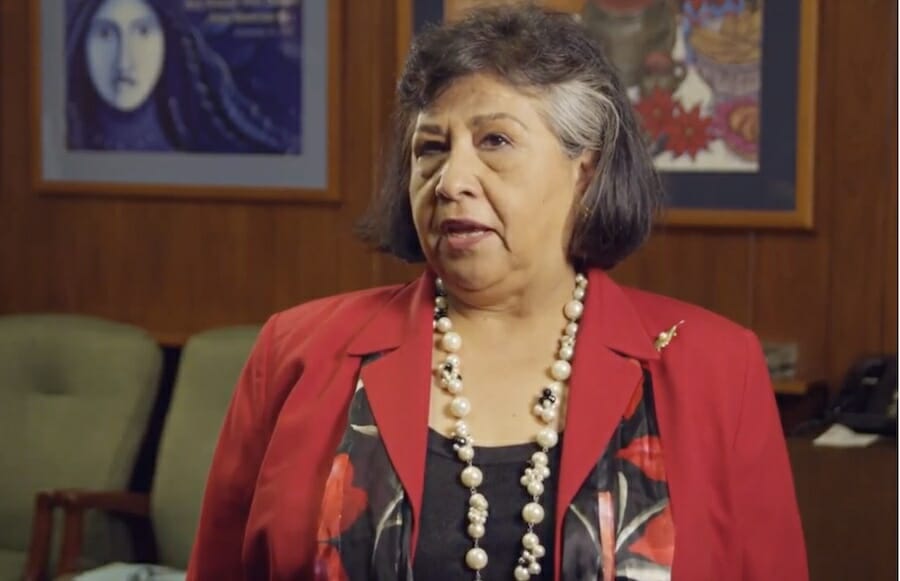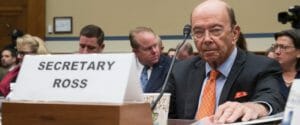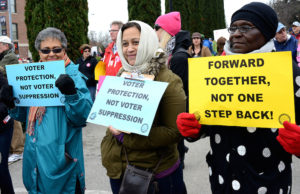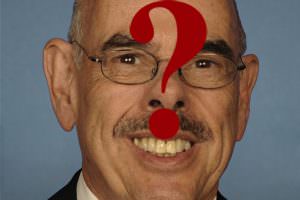The Antidote to Trump’s Emergent White Nationalism
A new book helps explain California’s role as a bulwark against the president’s anti-immigration policies. Gloria Molina, Los Angeles County's 1st District supervisor, in 2013. (YouTube)
Gloria Molina, Los Angeles County's 1st District supervisor, in 2013. (YouTube)
Discouraged by the rise of white nationalism across the country, I was heartened this month by a new book, “Power Shift: How Latinos in California Transformed Politics in America.” It’s the story of 10 Mexican-American men and women who rose from modest backgrounds to achieve great influence in California, one hard-fought step after another. Not only is their success a testament to the triumph of the human spirit, it helps explain why the Golden State is leading the resistance to President Trump.
“[For 70 years, Latinos were] subject to racialized treatment in education, employment, housing, health, law enforcement, land use and urban renewal, as well as the siting of dumps, freeways and other public works,” write authors David Ayon and George Pla. “Movie theaters and public swimming pools were segregated. But now … a new administration hostile to immigrants generally and to Mexican immigrants in particular could be met with the strength of a politically awakened community and leaders armed with institutional authority and clout. These leaders could speak not only for their Latino constituents but on behalf of the most populous state in the country and, as they [are] fond of pointing out, the sixth largest economy in the world.”
Ayon is a senior strategist and adviser for the Latino public opinion firm Latino Decisions, as well as senior fellow at the Center for the Study of Los Angeles at Loyola Marymount University. Pla, founder and CEO of Cordoba Corp., which manages construction of transportation, education, water and energy projects, is a longtime force in Latino politics.
The 10 figures profiled in their book range from the late Edward Roybal, a trail-blazing city councilman and member of the House of Representatives, to Antonio Villaraigosa, Los Angeles’ 41st mayor and the only Latino to have held that office since 1872.
Ayon and Pla explore the rough roads each traveled on their political journeys; perseverance, ambition, political skill, intelligence and personality pushed them ahead. From the book:
They were sometimes rivals, partners, allies and adversaries. … All descended from settlers and immigrants who ventured north from Mexico and all ended up one way or another in Los Angeles. Educated in American schools, there came a time … when they caught the eye of influential people looking for potential leaders. … Sometimes they were tapped, chosen, urged on to paths of leadership, sometimes they struck out on their own.
Two people profiled in the book were lovers. Maria Elena Durazo, a daughter of migrant farmworkers, was an insurgent union leader when she met Miguel Contreras, a union official with a gift for organizing members. They worked together, fell for each other and eventually married.
Gloria Molina grew up in one of the communities southeast of downtown Los Angeles, among poor and working-class neighbors. Her father, born in the United States, was a landscaper and a construction worker who joined the union as a hod carrier. She taught herself to speak English.
Molina was a teacher, a campaign volunteer and a successful candidate for the state Assembly, Los Angeles City Council and county Board of Supervisors. She faced any number of obstacles, including bitter opposition—even scorn—from the Latino men who had climbed the political ladder before her, only to pull it up behind them. Molina won despite them, riding a wave of support from Latina women. She was blunt, smart, well-prepared and always ready for a fight—a pleasure to cover when I was a local reporter hoping to inject some life into what could be a very dry subject.
While running for City Council and the Board of Supervisors, Molina faced district boundaries that had been drawn by white political leaders to divide her community’s vote. The courts and the Voting Rights Act would eventually offer a remedy, but this racial gerrymander made electing Latino representatives all but impossible. Writing about Molina, both her struggles against sexism and unfair districting, I felt as though I were recording history.
One of her opponents was Richard Polanco. Though he lost his race against her, he’d eventually capture a seat in the California Assembly.
“Two daily constants at home were that Polanco’s mother was always up by 5 a.m. And his father always worked two jobs: one in a steel foundry, making manhole covers, and another in a bakery,” write Ayon and Pla. “He recalled accompanying his father one summer to the ‘horrific,’ blazing hot foundry, with its roaring vats of molten steel. His dad came home every day exhausted, covered in salt from sweat. At night his moans from calambres, cramps, could be heard throughout the house.”
Polanco was later elected to the state Senate, becoming the Latino Legislative Caucus chairman. He was a skilled fundraiser, organizer and political strategist. Polanco understood that most of California, even in legislative districts where there was a strong Latino presence, was moderate. So he recruited like-minded Latino candidates, provided them with campaign funds and insisted they follow his centrist game plan.
When Polanco became caucus chairman, there were four Latinos in the Assembly. That number eventually rose to 13, enough to provide the margin to elect a moderate Democrat, Cruz Bustamante, as speaker. When I covered Polanco’s campaign to elect a Latino Assembly speaker, I saw how the past had shaped the present, especially during a celebration at UCLA. As he moved from table to table, a friend referred to Polanco as a “proud daddy.”
In recent years, Latinos have won control of the state Senate. Now, with the support of Gov. Jerry Brown and two powerful statewide officeholders—Attorney General Xavier Becerra and Secretary of State Alex Padilla, California has built a bulwark against Trump and his anti-immigration policies.
By examining the struggles of its participants, Ayon and Pla have given this saga the humanity it deserves. Each of the lives in this book stands as a rebuke to the president and his racism—as do those of millions of Latino Americans across the country.
Your support matters…Independent journalism is under threat and overshadowed by heavily funded mainstream media.
You can help level the playing field. Become a member.
Your tax-deductible contribution keeps us digging beneath the headlines to give you thought-provoking, investigative reporting and analysis that unearths what's really happening- without compromise.
Give today to support our courageous, independent journalists.







You need to be a supporter to comment.
There are currently no responses to this article.
Be the first to respond.